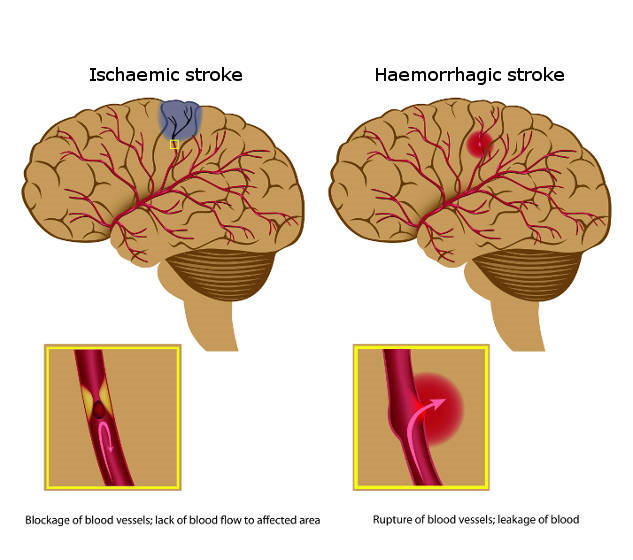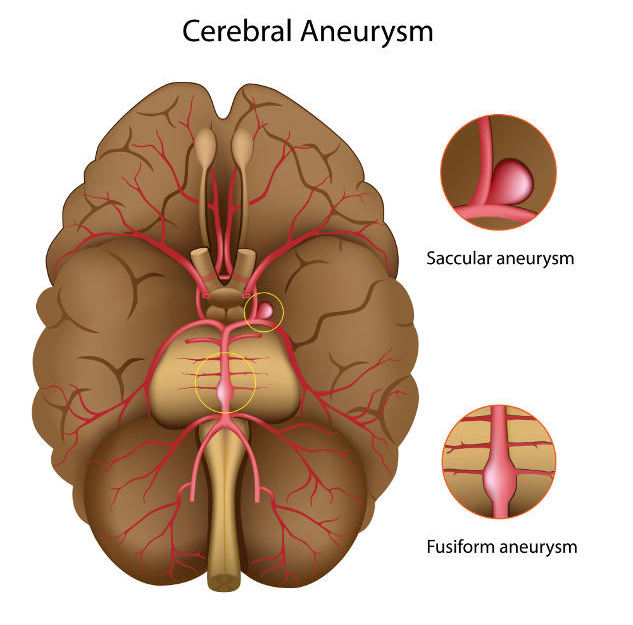Types of Brain Injury
Traumatic Brain Injury (TBI)
Traumatic Brain Injury (TBI) is an injury to the brain caused by a trauma to the head (head injury). There are many possible causes, including road traffic accidents, assaults, falls and accidents at home or at work.
A brief period of unconsciousness, or just feeling sick and dizzy, may result from a person banging their head getting into the car, walking into the top of a low door way, or slipping over in the street. It is estimated that 95% of all head injuries fall into this category.
A moderate head injury is defined as loss of consciousness for between 15 minutes and six hours, or a period of post-traumatic amnesia of up to 24 hours. The patient can be kept in hospital overnight for observation, and then discharged if there are no further obvious medical injuries. Patients with moderate head injury are likely to suffer from a number of residual symptoms.
Severe head injury is usually defined as being a condition where the patient has been in an unconscious state for six hours or more, or a post-traumatic amnesia of 24 hours or more. These patients are likely to be hospitalised and receive rehabilitation once the acute phase has passed. Depending on the length of time in coma, these patients tend to have more serious physical deficits.
The effects of a traumatic brain injury on an individual depends on a number of factors such as the type, location and severity of injury. Symptoms can be wide-ranging, from physical effects such as balance problems, headaches and dizziness to cognitive, emotional and behavioural effects such as memory problems, fatigue and anger.
Stroke
A stroke is an emergency condition in which there is a disruption of blood supply to part of the brain, leading to brain injury.
The brain relies on a rich supply of oxygen to keep brain cells working; this is supplied by an intricate network of blood vessels that pump oxygen-rich blood around the brain. When this blood flow is disrupted by either a blood clot or a burst blood vessel, the brain cells are starved of oxygen and they begin to die. This results in brain injury.
There are two types of stroke:
- Ischemic stroke: A blood clot in a blood vessel causes a blockage of blood flow
- Haemorrhagic stroke: A weakened blood vessel bursts, causing blood to leak into the brain.

What are the symptoms of a stroke?
The occurrence of stroke can usually be identified by the onset of the following symptoms:
- F – face. Part of the person’s face starts to droop, making it difficult for them to smile.
- A – arms. The person is unable to fully lift their arms.
- S – speech. The person has difficulties with speech, which becomes slurred.
- T – time. It is time to call 999. A person displaying these symptoms must immediately be taken to an emergency department for treatment.
A person experiencing a stroke might also have a sudden headache, confusion, dizziness, problems with communicating or problems with their vision.
What is a TIA?
These are mini strokes that can occur in the brain. A TIA occurs when there is a temporary disruption to the blood supply to the brain due to a blocked blood vessel. The symptoms of a TIA are the same as a stroke, but they only last for a few minutes or hours. However, medical attention should always be sought as soon as these symptoms are recognised, as they can be an indication of a stroke occurring. Even if the symptoms of a TIA improve or disappear by the time an ambulance arrives, it may still be necessary to carry out a medical assessment, as TIAs indicate a risk of experiencing a stroke in the future.
Aneurysm
A brain aneurysm is a swelling in the wall of a weakened blood vessel in the brain, resembling a blister.

A blood vessel can be weakened from a number of causes. When the wall is weakened, blood passing through can create pressure, causing part of the blood vessel wall to swell into an aneurysm.
An aneurysm can grow over time, causing pressure on the surrounding tissue. In a small number of cases, this can cause a variety of symptoms such as headaches and fatigue. However, in most cases people do not have any symptoms and may even be unaware that they have an aneurysm unless this is detected by chance, for instance if a scan is performed for a separate medical issue.
Brain Tumour
A brain tumour is an abnormal mass of tissue inside the skull, which is caused by cells dividing at an increased speed. There are two types of brain tumour: malignant and benign.
Malignant, or cancerous, tumours often invade surrounding tissue and can spread to other parts of the body through the blood stream or lymphatic system. They can also erode ‘healthy’ tissue, as the cells that make up a malignant tumour share very little in common with the healthy cells that surround them.
Because malignant tumours often grow and spread rapidly, early diagnosis can increase the chances of survival. If caught early, they will have had less chance to destroy healthy brain tissue, and are less likely to have spread to other parts of the body. Sometimes, brain tumours are the result of other malignant tumours in other parts of the body that have spread to the brain – these are known as ‘metastases’, or ‘secondary tumours’. These are always malignant.
Benign, or non-cancerous, tumours tend to grow more slowly and do not spread, although people can have more than one benign tumour. A benign brain tumour can put pressure on the brain as it grows inside the enclosed space of the skull, and this may compress and damage healthy tissue.
Modern imaging techniques, such as MRI and CT scans, have made it possible for doctors to accurately judge the size and location of a tumour, making surgery possible where the growth is accessible, and allowing them to estimate how treatable it is. Surgery to remove all or part of a brain tumour is called a craniotomy, where the skull is opened. Where the entire tumour cannot be removed, radiotherapy or anti-cancer drugs may be tried to slow, limit or stop its spread.
The effects of a brain tumour are dependent on the size and location of the tumour and how much it has spread.
Encephalitis
Encephalitis is an inflammation of the brain, most often caused by infections.
In the UK, the cause in over 50% of cases is unknown, despite extensive testing. Where the cause is identified, it is most likely to be the Herpes-Simplex virus, but there are a number of other viruses or bacteria that can cause encephalitis.
Encephalitis resulting from Herpes-Simplex virus can be treated quite effectively with an anti-viral drug, but early diagnosis is important to reduce the long-term damage.
At present, there are few effective treatments for encephalitis caused by different viruses, and care mainly focuses on support and symptom management.
In many cases, people will make a good recovery from encephalitis, but nerve cells in the brain may be damaged. This can lead to long-term effects, which are sometimes severe.
Concussion
Concussion is also often referred to as mild head injury, minor head injury or mild traumatic brain injury (mTBI). Regardless of the terminology used, the occurrence of a head injury in these cases causes the brain to shake back and forth inside the skull, causing mild damage.
Concussion is commonly caused by falls, road crashes, assaults and sports accidents. While most mild head injuries result in no long-term damage to the brain, it can cause temporary disruption to brain function that can last for at least a number of weeks.
What are the symptoms of concussion?
Mild head injury can leave people with a range of concussion symptoms including dizziness, nausea, confusion or an inability to process or retain information, sensitivity to light, and vision distortion.
In some cases, an individual may lose consciousness as a result of the head injury, but it is important to note that only around 10% of reported concussions involve a loss of consciousness – so it’s important to not solely rely on this as an indicator.
In the early stages after a mild head injury, there is a small risk of developing complications that may require emergency treatment. Find out more about the warning signs below.
While for most people concussion symptoms will resolve themselves in a few days or weeks, some people may find that they persist for much longer. Post-concussion syndrome is the name given to the range of symptoms that continue to occur following a mild head injury or concussion.
While unlikely, there is a small risk of developing complications, so if you experience any of the following concussion signs and symptoms in the next few days you should go to your nearest Emergency Department as soon as possible:
- Loss of consciousness
- Increasing disorientation
- New deafness in one or both ears
- Problems understanding or speaking
- Loss of balance or problems walking
- Blurred or double vision
- Any weakness in one or both arms or legs
- Inability to be woken
- Any vomiting
- Bleeding from one or both ears
- Clear fluid coming out of your ears or nose
- Any fits (collapsing or passing out suddenly)
- Drowsiness when you would normally be wide awake
- Severe headache not relieved by painkillers such as paracetamol
- DO make sure you stay within reach of a telephone and medical help in the next few days
- DO have plenty of rest and avoid stressful situations
- DO show this information to a friend or family member who can keep an eye on your condition
- DO take painkillers such as paracetamol for headaches
- DO find out more in our factsheet Mild head injury discharge advice (PDF)
- DO get further information on when to seek medical attention on the NHS website
- DON'T stay at home alone for 48 hours after leaving hospital
- DO have plenty of rest and avoid stressful situations DON'T drink alcohol until you feel better
- DON'T take aspirin or sleeping tablets without consulting a doctor
- DON'T return to work until you feel ready
- DON'T play any contact sport for at least three weeks without consulting your doctor
- DON'T return to driving until you feel you have recovered. If in doubt, consult your doctor.


